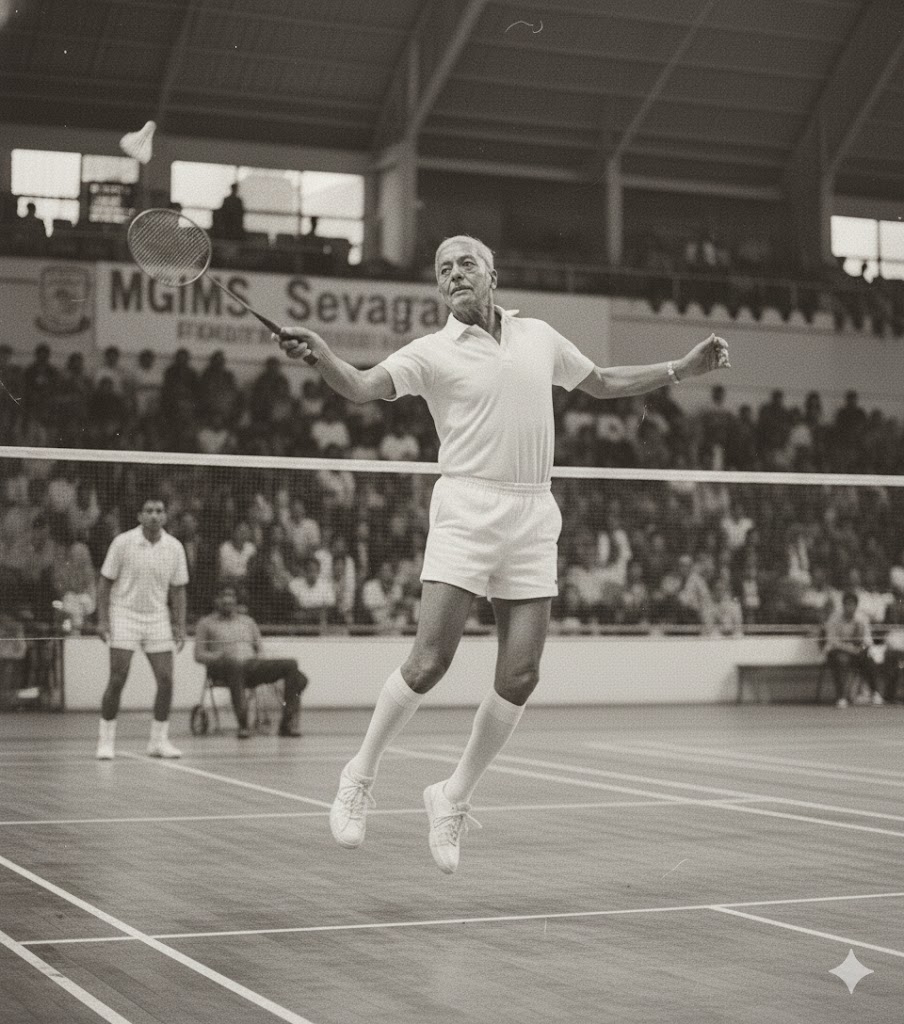(12 July 1942-17 November 2025)
In the Sevagram of the early 1970s—when nights seemed darker, trees stood taller, and time itself moved at an unhurried pace—a young man arrived with a small kitbag, a quiet smile, and a heart that beat for badminton. His name in the school register read Bhaskar Marotrao Tupkar. But for generations of students at MGIMS, he was simply Tupkar Sir—the slight, soft-spoken man who filled the playground with a spirit far larger than his frame.
He had grown up in Chandrapur, the son of a railway contractor, more comfortable with a racket than with textbooks. English confused him, mathematics annoyed him, and biology put him to sleep. But give him a court, a shuttle, and a bit of evening light, and he came alive.

There was no internet then, no television, no sports academies, and no idols to imitate. Prakash Padukone was still years away from national fame, and Pullela Gopichand had not yet stepped onto a court. So the boy learnt by watching the flight of the shuttle, by feeling the weight of the racket, by marking out dusty lines that became his universe—twenty-two feet by seventeen.
When Sevagram called him in 1970, he came willingly—young, single, and ready to spend his life around games. His mentor was KN Ingley Sir, from Physiology. The institute was only a year old; the grounds were uneven, the hostels half-finished. But every evening, under tube lights that flickered more than they glowed, he trained teams that would soon win Nagpur University colours. Mention his name to Vilas Kanikdaley, Arvind Garg, Ravi Gupta , Suraj Pal, Ashok Mehendale , Danny Naik, Harminder Kaur or Anil Ballani, and you will still see a smile.
They remember the sounds of those evenings: table tennis in the boys’ hostel, cricket on the open maidan, and badminton outside the girls’ hostel—where Tupkar Sir’s voice could be heard above the birds settling in their trees.
He pushed his students, teased them, scolded them, and shaped them. Although he never played cricket himself, he followed the game with a fan’s pure devotion. Only a fortnight ago, he sat in front of the television watching the India–South Africa women’s world cup final match, cheering with childlike excitement when Harmanpreet Kaur took that catch.
Through the years, he taught PT at Kasturba Vidya Mandir, guided generations in the boys’ hostel, and carried on with his easy social warmth, always with a bit of paan tucked neatly in his cheek.
Yesterday, at eighty-four, a sudden haemorrhagic stroke stilled him. True to a sportsman’s nature, he did not prolong the final moment. He simply walked off the court with quiet dignity.
The shuttle has fallen gently to the floor.
The rally is over.
Goodbye, Tupkar.